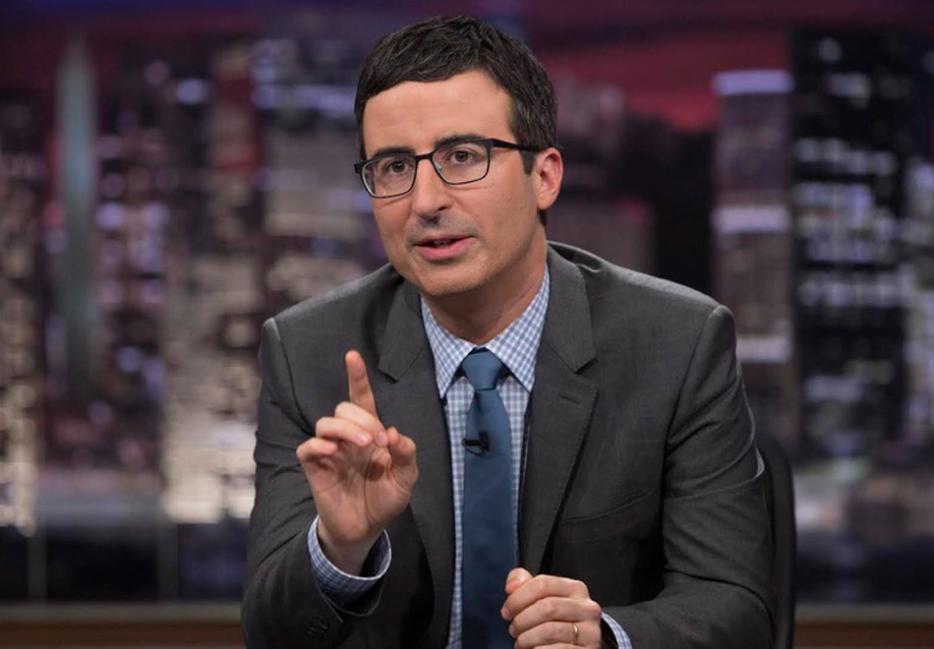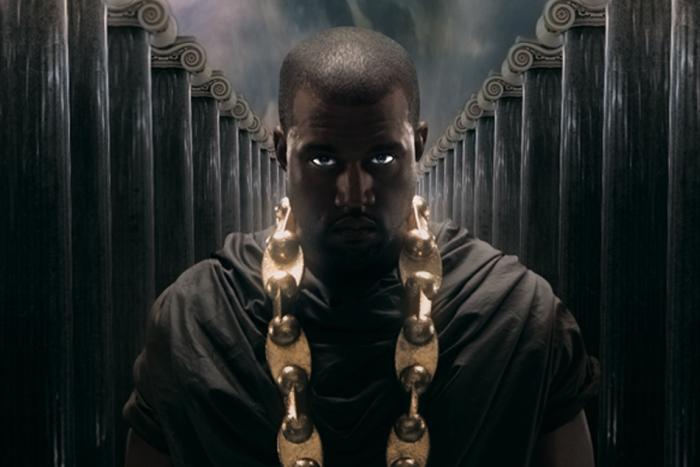His purview is supposed to be limited to the last week, but John Oliver has spent the first few months of his HBO show's run reaching a lot further back into America's psyche. Whatever nominally topical subject he's taking on, he uses Last Week Tonight to treat it like a springboard, launching off of a piece of congressional testimony or a Supreme Court decision into a kind of miniature State of the Union, a barbed look at how this ridiculous bit of news is a data point on a much broader, and often considerably less funny, chart.
Not quite a year removed from his name-making summer of guest-hosting work on The Daily Show, the crown of seven years spent as the dryly sarcastic Senior British Correspondent, Oliver still isn't entirely out of that show's long shadow, nor is his approach really light years away from the exaggerated exasperation that is Jon Stewart's most exportable good. Still, if Stephen Colbert is (soon enough, was) the satirical Satanic message you get from playing TDS backwards, Oliver so far is its slowed-down SoundCloud track, explicating and dissecting exactly why so much in the news deserves to be treated with bitter irony.
I say "so far" because the show itself still seems in something like a state of flux, HBO taking a refreshingly hands-off approach and granting editorial freedom to a man who has ridden political satire from the Cambridge Footlights and the Edinburgh Fringe to the centre of American skewering. The format is fluid, taking full advantage of the fact it doesn't need chopping up into commercial-split segments. He occasionally has guests, but their role is decidedly minor, usually just an adjunct to a joke (the best so far being his accurate representation of the climate change debate,featuring Bill Nye and 97 other scientists). He also has smaller, Daily Show-esque bursts about odd or important stories that have gotten lost in the maelstrom of the news cycle, which seem to fit with his wider themes about our collective indifference to the important parts of the world.
That comes through most clearly in Oliver's killer app: essayistic breakdowns of issues that, if not actually entirely ignored, are at least conveniently overlooked as often as possible, especially in a television news sense. Growing to take up more and more of the show each week, they've now become a staple of Monday morning recaps, vaguely progressive sites in particular trumpeting Oliver's "dismantling" or "destroying" of some ridiculous injustice of life in America (or occasionally the world at large). They have begun to rack up millions of views online, even as Oliver's ratings themselves steadily decline, which is maybe a problem HBO is going to have to look at eventually, but for now at least is a fine way of keeping their spot as the thing everyone is talking about before they actually have to settle into their work week.
These segments are really only unique for the intricate care Oliver puts into each one, editorial comment done with an uncommon intellectual grace and a dead eye for satirical soft spots. Where The Daily Show's talent is in its clip-jitsu, and Colbert's in his stone face, Oliver's is in rhetoric—in the way he steadily builds his argument, making both laughter and unease seem depressingly inevitable. If Stewart—and, realistically here, almost any standard television talking head, regardless of intended level of humour—can occasionally be dismissed as just cleverly preaching to the choir, Oliver is explaining the choir's songbook with musical theory and historical precedent, drilling down until he reaches the values that are being espoused (and then, usually, showing the choir where they're hitting the wrong notes).
That FIFA piece—still his most popular, and as succinct and funny a summation of both the soccer body's glaring hypocrisies and the soccer fan's gutting indifference as you'll find—is a great example. Oliver starts with a series of clips of people calling soccer a religion, and then lays out the foundations of organized religion without telling us he's doing so: fevered worship, cathedral building, economic fealty, moral definition, inevitable abuse of absolute power. Each little point is capped by a joke that keeps this funny, but also neatly sums up another line in the argument ("be relieved that FIFA wasn't sponsored by cocaine and chainsaws"). Distinctly laid-out, he brings it home by making the metaphor explicit, running over the points with a series of one-liners. It's an elegant construction, even the jokes built into a self-supporting architecture, giving his point a kind of fractal simplicity, easy to recognize in the individual but repeating out into something both complex and irresistible.
It's that sort of attention to detail that lets Oliver get away with disquisitions on the death penalty or the prison system, permitting him to wade into issues that by all rights shouldn't be summarized in 15 minutes and still come out seeming, if not sage, at least remarkably clear-eyed about what the hell is happening. As Oliver's American cousins have spent the last decade reinforcing, humour is remarkably good at clearing away the swaths of bullshit that surround most any important topic; dissection, though, requires much subtler tools, and the early days of Last Week Tonight suggest that Oliver is as interested in picking things apart as putting them down.





